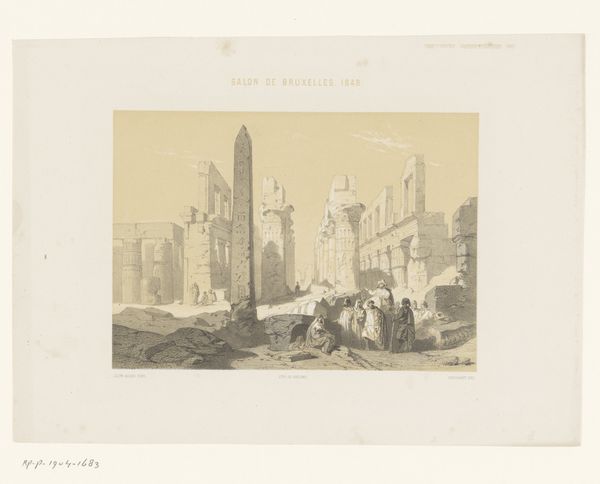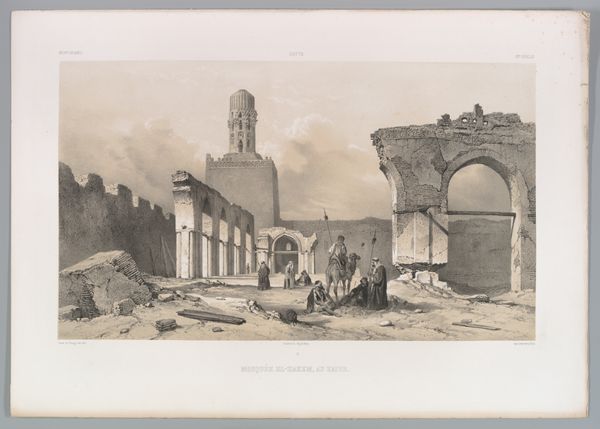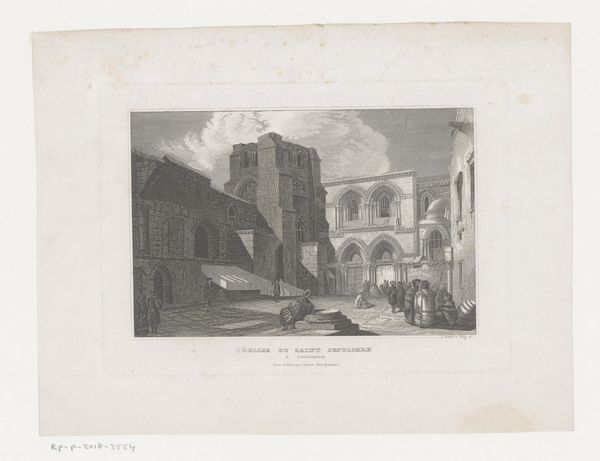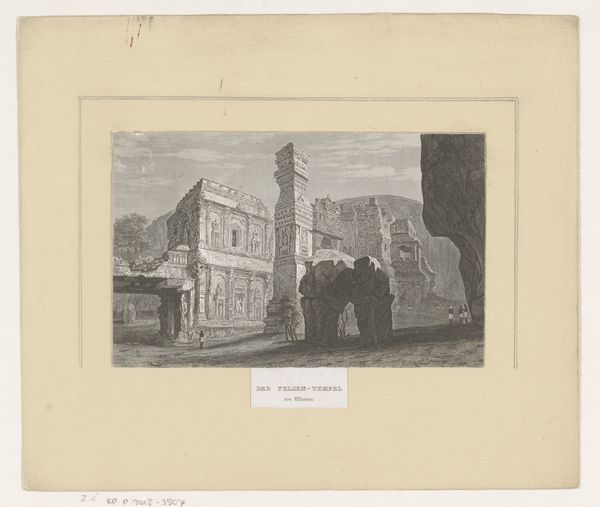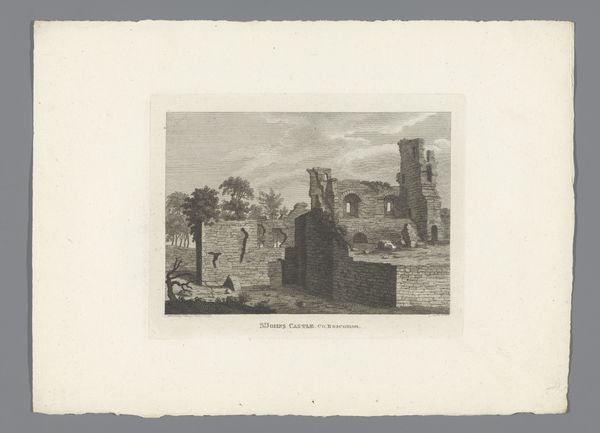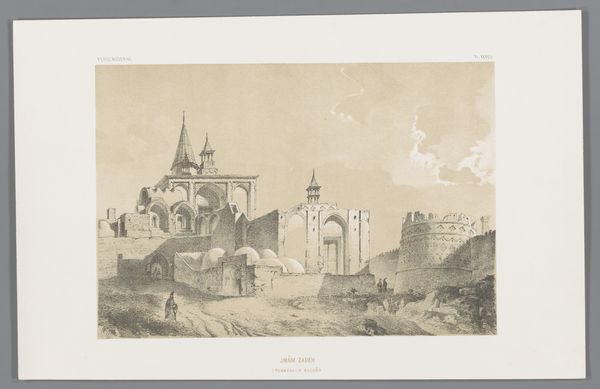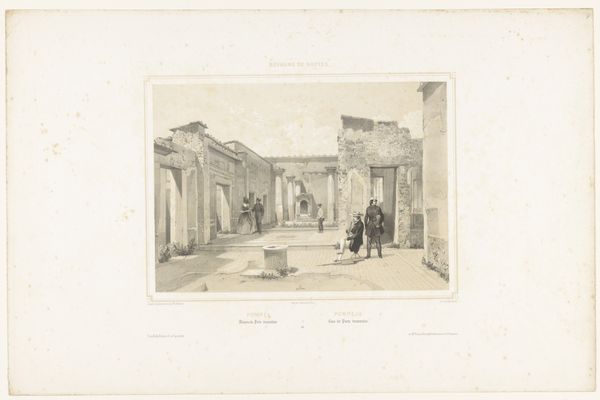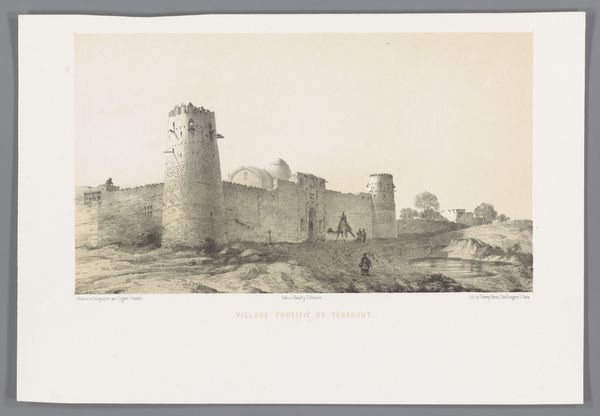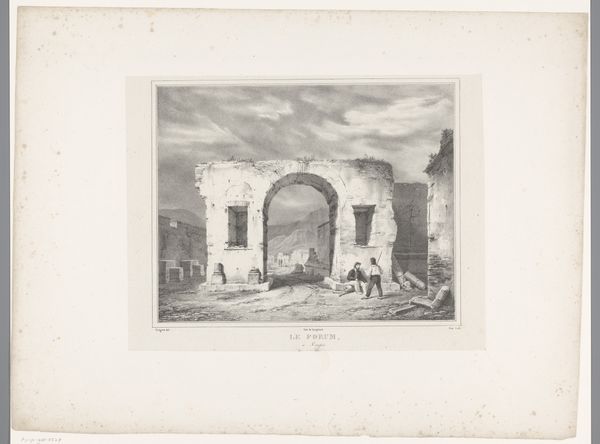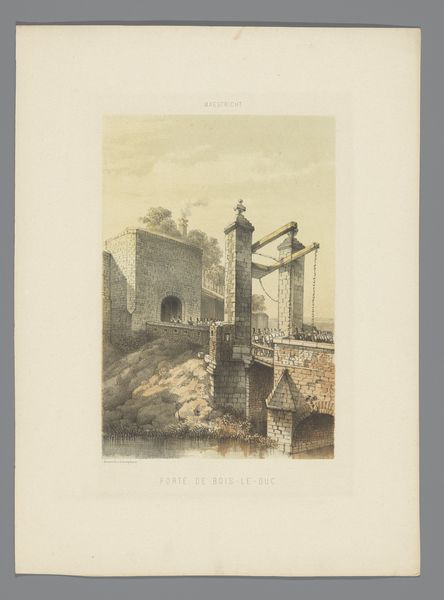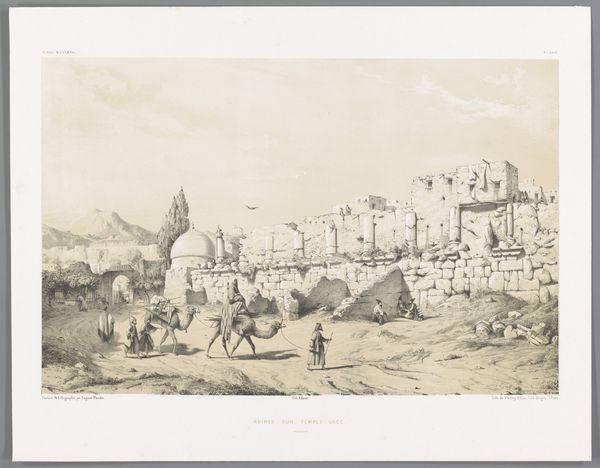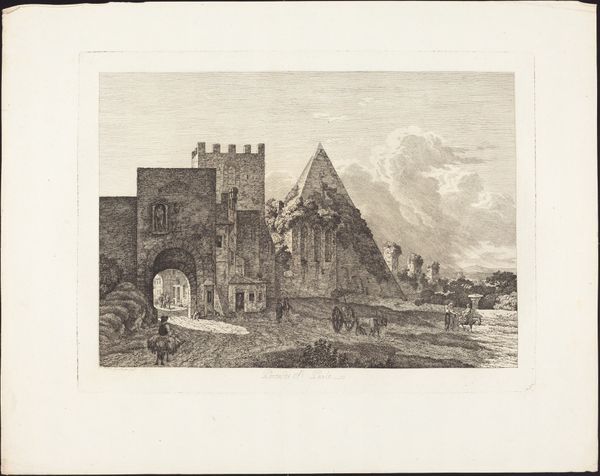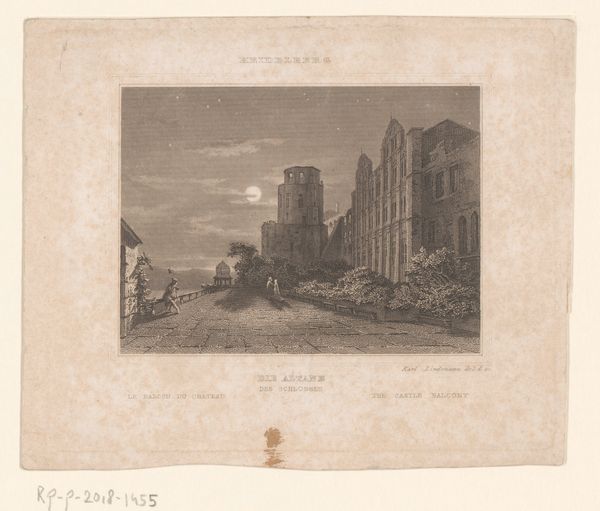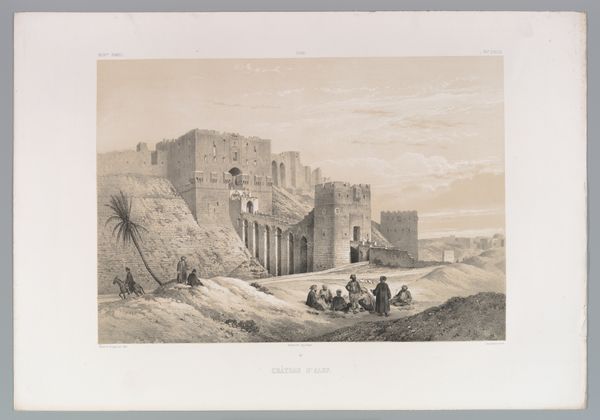
drawing, print
#
faded colour hue
#
drawing
#
aged paper
#
light colour palette
#
pale palette
#
reduced colour palette
#
pale colours
# print
#
light coloured
#
landscape
#
white palette
#
orientalism
#
pale shade
#
cityscape
#
islamic-art
#
soft colour palette
Dimensions: height 634 mm, width 446 mm
Copyright: Rijks Museum: Open Domain
Eugène Flandin created this print, "Two Views of Tabriz," to illustrate the city's blend of the functional and the ruined. This image offers us insights into the social and cultural landscape of 19th-century Persia through a European lens. France had significant diplomatic ties with Persia during this period. Flandin, a painter and archaeologist, documented Persian architecture and cityscapes. The image captures not only the physical structures of Tabriz but also hints at the flow of people and goods through the city's gate, offering glimpses into daily life and commerce. The lower part of the image captures the ruins of what was once a magnificent palace. Flandin's images served as visual documentation for European audiences. They provided a window into a distant land, shaping perceptions and reinforcing the power dynamics inherent in the act of representation. To fully understand Flandin’s print, we might consult travelogues, diplomatic archives, and studies of Franco-Persian relations. The artwork reminds us that the meaning of art is closely tied to social and institutional contexts.
Comments
No comments
Be the first to comment and join the conversation on the ultimate creative platform.
